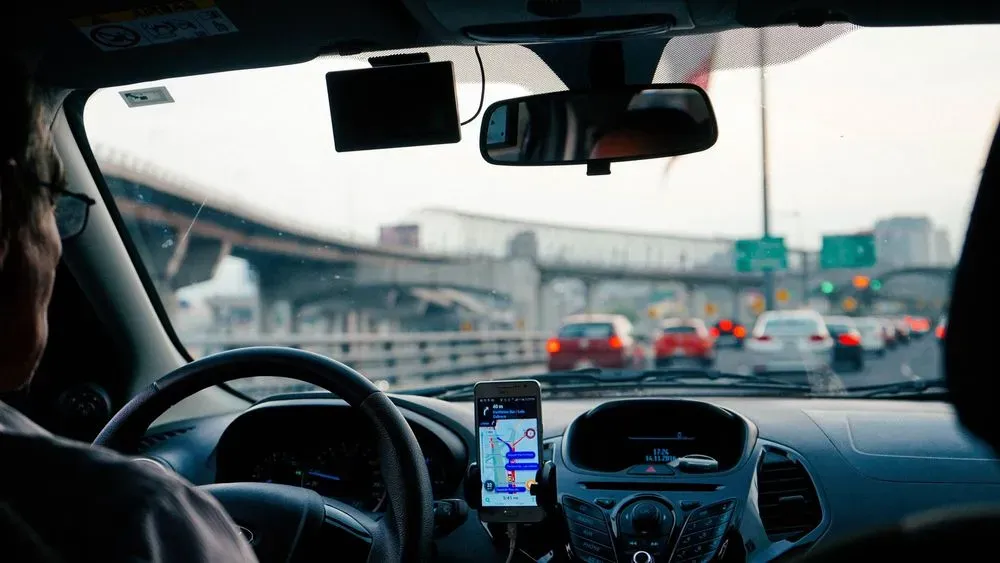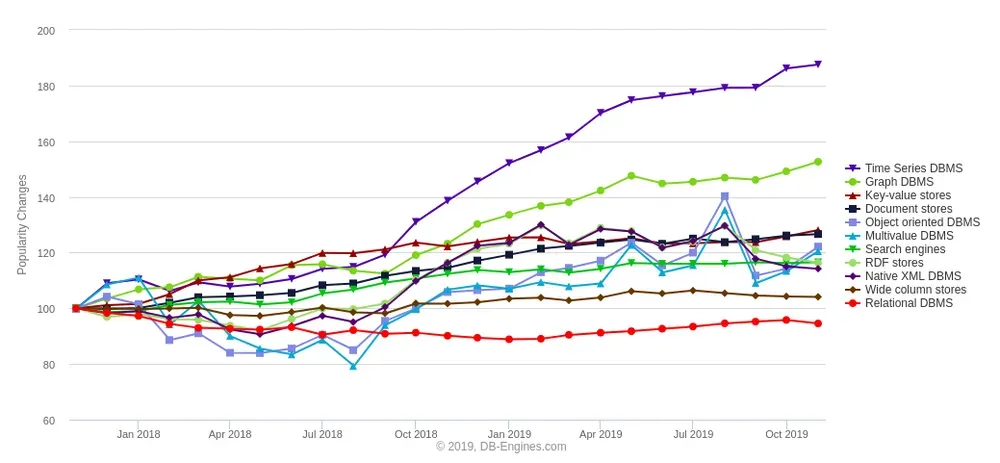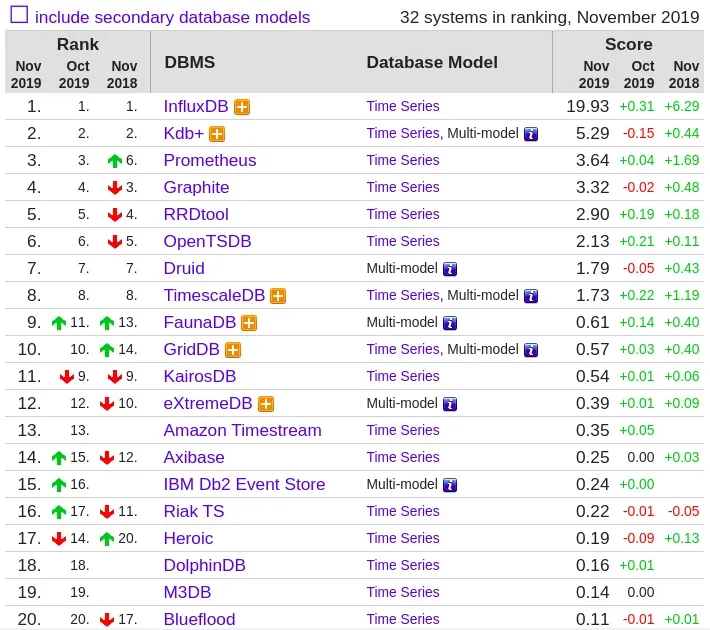- Home
- Time series databases, what is it, and when to use it?
Time series databases, what is it, and when to use it?
Welcome everyone to a new devspedia story. Today we'll be talking about time series databases, what are they, and when it can be the best choice.

A common use cases for time series databases is with autonomous driving systems, ride booking apps, delivery apps, and last mile apps.
So, time series databases are used in many services and industries around us, some of these we interact with them day to day, here's a few examples:
- Autonomous trading algorithms, they keep track of market changes.
- Car booking apps, they need to keep track of driver and rider coordinates before, during, and after the trip to know where you want to be picked up, where you were actually picked up, where's the driver, where did he drop you off, ... etc.
- Last mile delivery companies tracking coordinates of their fleet of cars, to know their locations, and where packages were delivered, ...etc
- Cloud computing service providers such as AWS, Google Compute Cloud, Azure, ...etc they need to keep track of resources utilization, some of these require them to know changes happened to a resource as a time series.
So how does it work?
A time series database allows you to keep track of changes on a piece of data over time. This happens by combining some fixed and variable properties.
Let's take an example to make it clear; Let's say you've booked Uber from point A to point B. We need to keep track of your trip's path from start to end as a time series.
In a time series database, we can have this fixed property:
- Trip ID (trip identifier).
And this dynamic/variable property:
- location: [latitude, longitude]
So since trip starts, and until trip is ended we keep sending new values
(let's say every 100 meters) for the location property, while time
is passing by.
At any point of time when we send a new value, this new record is called a tag. So now we have information
Now we have a tremendous amount of very useful data! Simply because it's reflecting 1 thing (a trip) and is tied with a time series. Here's what we can do with the above data.
- Know how much total time the trip consumed.
- Know the actual path the driver took during the ride.
- Know how much time the driver took in a particular street, and predict congestion in the future.
- Know average driver's car speed during entire trip, or between 2 particular coordinates.
- and a lot more!
Okay, sounds awesome, but I can do this with a regular DB (NoSQL, or kay-value pairs like Redis).
You're actually right! But there are a few differences between time series databases and other databases that makes it more valuable and efficient to use a time series database over a regular database for use cases as the mentioned above, here's a few below:
Scalability:
- Time series databases can easily handle 100k to +1M inserts per seconds.
- Tracking a trip (as in the example above) for the entire day, would take roughly (on average) 4 GBs of data, and for only 1000 trips we're talking about 4 TB of data. Time series databases are designed to handle tremendous amounts of data easily. If you do the same in an SQL DB you'd have 4 TB of data per 1000 trip, millions of rows, and a reduced performance compared to a time series database.
- Time series databases are designed to operate on time stamped/based data, this allows for a much better performance on scale compared to other databases.
Usability:
Time series databases have built-in operations that are time-based, which does not exist in any other type of database, that makes it easier to run powerful analysis on these data.
Time series databases popularity is growing rapidly
For the past 2 years, time series databases are the fastest growing type of database in terms of usage and popularity.

Finally, here's a list of top 20 ranking time series databases:

Time series databases are very useful when used in projects where time series is the only choice that makes sense.
Resources:
- https://blog.timescale.com/blog/what-the-heck-is-time-series-data-and-why-do-i-need-a-time-series-database-dcf3b1b18563/
- https://db-engines.com/en/ranking_categories
- https://www.influxdata.com/time-series-database/
- https://db-engines.com/en/ranking/time+series+dbms
Finally, thanks for reading devspedia, I love you, and see you the next time :)
This article was written by Gen-AI using OpenAI's GPT-3.
1073 words authored by Gen-AI! So please do not take it seriously, it's just for fun!
Related
-
Many to Many vs Polymorphic relationships
-
Sorting algorithms, with visualizations and complexity comparisons
-
Pros and cons of different feature flags table designs
-
5 Reasons to Consider using Amazon RDS for Your Next Web Project
-
An Overview of Time Series Databases
-
Choosing the Right Database for Your Web Application